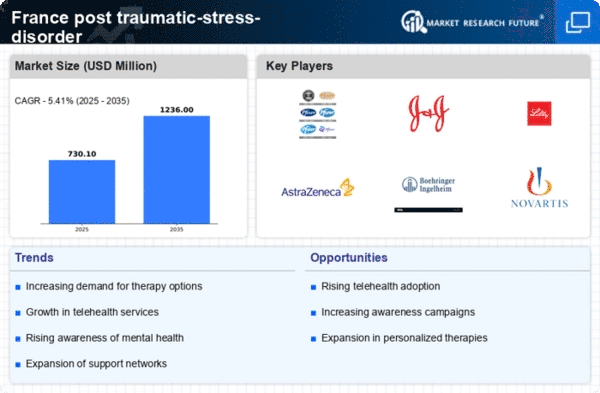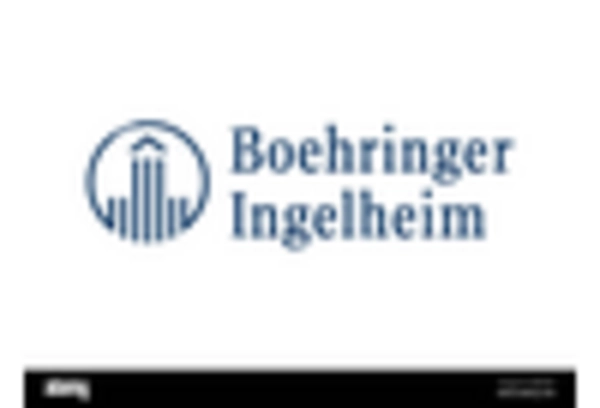Rising Incidence of PTSD Cases
The post traumatic-stress-disorder market in France is experiencing growth due to the rising incidence of PTSD cases. Recent studies indicate that approximately 8% of the French population may experience PTSD at some point in their lives. This prevalence is particularly notable among veterans, emergency responders, and individuals exposed to traumatic events. The increasing recognition of PTSD as a serious mental health issue has led to greater demand for effective treatment options. As awareness grows, healthcare providers are more likely to seek innovative therapies and interventions, thereby driving the post traumatic-stress-disorder market forward. Furthermore, the French government has initiated programs aimed at improving mental health services, which may further bolster market growth.
Government Initiatives and Funding
Government initiatives play a crucial role in shaping the post traumatic-stress-disorder market in France. The French government has allocated substantial funding towards mental health services, with a reported increase of 15% in budgetary provisions for mental health care in recent years. This funding is directed towards enhancing access to treatment, training healthcare professionals, and promoting awareness campaigns. Such initiatives not only improve the quality of care available to individuals suffering from PTSD but also stimulate the market by encouraging the development of new therapeutic modalities. The commitment to mental health by the French government suggests a supportive environment for the post traumatic-stress-disorder market, potentially leading to increased investment and innovation.
Advancements in Therapeutic Modalities
The post traumatic-stress-disorder market is significantly influenced by advancements in therapeutic modalities. In France, there has been a notable shift towards evidence-based treatments, including cognitive behavioral therapy (CBT) and eye movement desensitization and reprocessing (EMDR). These therapies have shown efficacy in treating PTSD, leading to a growing acceptance among healthcare providers. Additionally, the integration of pharmacological treatments, such as selective serotonin reuptake inhibitors (SSRIs), has expanded the options available for patients. The combination of these therapies is likely to enhance treatment outcomes, thereby increasing demand within the post traumatic-stress-disorder market. As research continues to evolve, new therapeutic approaches may emerge, further driving market growth.
Integration of Digital Health Solutions
The integration of digital health solutions is emerging as a transformative driver for the post traumatic-stress-disorder market in France. Telehealth services and mobile applications designed for mental health support are gaining traction, particularly in the wake of increased digitalization in healthcare. These solutions offer convenient access to therapy and resources, which is particularly beneficial for individuals in remote areas or those hesitant to seek traditional in-person treatment. Reports suggest that the use of digital platforms for mental health support has increased by 25% in recent years. This trend not only enhances accessibility but also fosters engagement in treatment, potentially leading to improved outcomes in the post traumatic-stress-disorder market.
Increased Focus on Mental Health Awareness
The post traumatic-stress-disorder market in France is benefiting from an increased focus on mental health awareness. Public campaigns and educational programs have been instrumental in reducing stigma associated with PTSD, encouraging individuals to seek help. Surveys indicate that over 60% of the population now recognizes the importance of mental health, which has led to a rise in consultations for PTSD treatment. This cultural shift is likely to result in a higher demand for services and products related to the post traumatic-stress-disorder market. As more individuals come forward to address their mental health needs, the market is expected to expand, providing opportunities for healthcare providers and pharmaceutical companies alike.
















